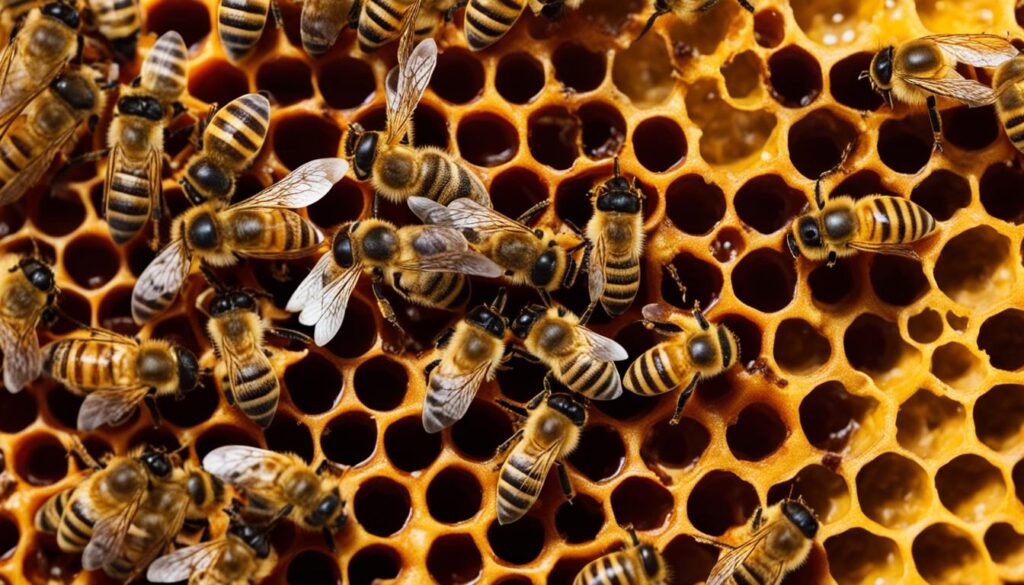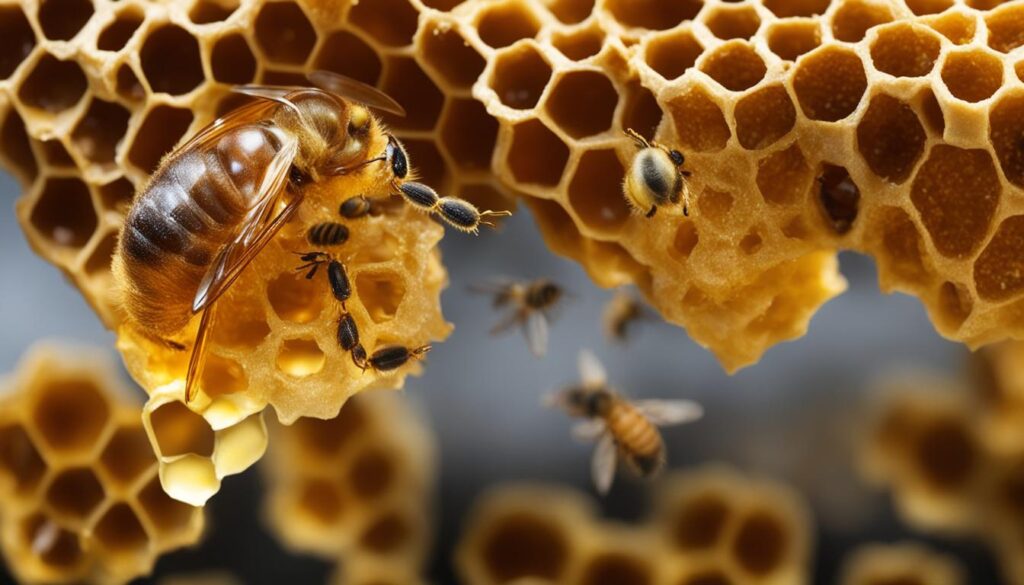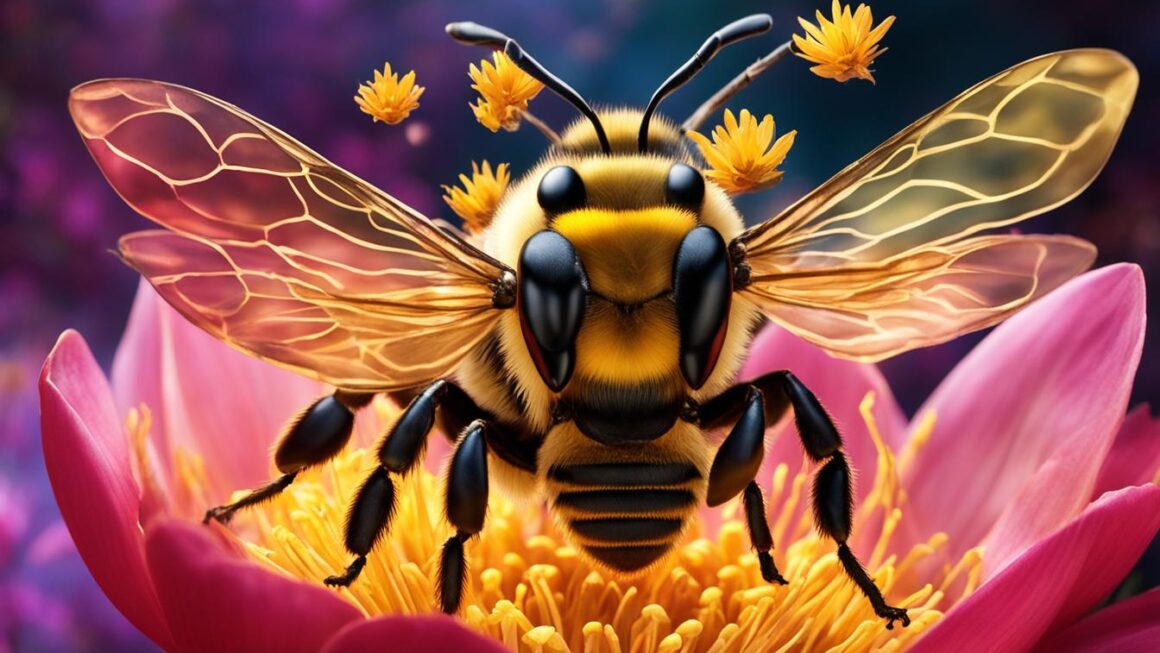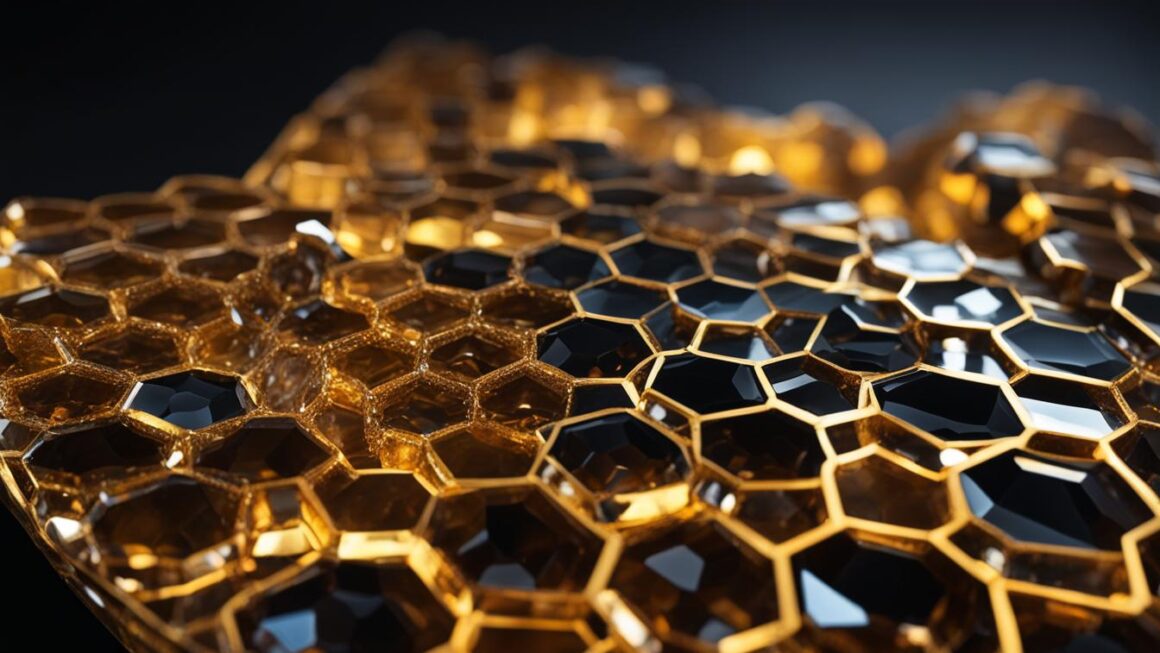Royal jelly, a gelatinous secretion from bees, has been used as a dietary supplement and health aid for humans since ancient times. It is known for its potential health benefits, including its possible effects on fertility. While there is limited research on the topic, royal jelly has been studied for its potential antioxidant properties and nutritious contents. However, it is important to note that royal jelly is not approved as a health aid by the FDA and may cause allergic reactions in susceptible individuals. It is best to consult with a healthcare provider before taking royal jelly for fertility purposes.
- Royal jelly has been used as a dietary supplement for fertility for centuries
- Research on the effects of royal jelly on human fertility is limited
- Royal jelly is not approved by the FDA as a health aid
- Consult with a healthcare provider before using royal jelly for fertility purposes
- Allergic reactions may occur in susceptible individuals
The History and Traditional Use of Royal Jelly for Fertility
Royal jelly, a gelatinous secretion produced by bees, has been utilized for centuries as a dietary supplement and health aid. Its historical use in various ancient civilizations speaks to its esteemed reputation as a natural remedy. In particular, royal jelly has been associated with fertility enhancement, offering hope to couples trying to conceive.
In traditional Chinese medicine, royal jelly is believed to possess properties that promote energy, vitality, and overall well-being. Its historical consumption by royalty, attributed to its limited supply, further solidifies its association with prosperity and reproductive health.
While the exact mechanisms behind royal jelly’s potential effects on fertility remain unclear, some research suggests that it may modulate sex hormone levels and regulate glucose levels in individuals with polycystic ovary syndrome (PCOS). However, it is important to note that further investigations are required to fully comprehend the potential benefits of royal jelly for reproductive health in humans.
“Royal jelly has a long history of use as a dietary health aid in ancient civilizations worldwide.”
The Potential Effects of Royal Jelly on Reproductive System
Animal studies have shown that royal jelly may have potential effects on the reproductive system. One review found that royal jelly has estrogenic effects and can bind to estrogen receptors in the body. This suggests that it may have implications for fertility, although more research is needed to fully understand the mechanisms involved.
In addition to its estrogenic effects, royal jelly has also been shown to promote follicular development in female rats and increase litter size in rabbits. These findings suggest that royal jelly may have the potential to enhance fertility and reproductive outcomes.
Furthermore, royal jelly has demonstrated anti-diabetic effects in animal studies. This is particularly significant for individuals with polycystic ovary syndrome (PCOS), as they often experience insulin resistance and glucose regulation issues. By improving glucose levels, royal jelly may indirectly support fertility in individuals with PCOS.
Table: Summary of Animal Studies on the Effects of Royal Jelly on Reproductive System
| Animal | Effect of Royal Jelly |
|---|---|
| Rats | Potential estrogenic effects, promotion of follicular development |
| Rabbits | Increase in litter size |
| General | Potential anti-diabetic effects, which may indirectly support fertility in individuals with PCOS |
It is important to note that while these animal studies provide valuable insights, human studies have had mixed results. More research is needed to establish the exact effects of royal jelly on human fertility and reproductive health.
Overall, the potential effects of royal jelly on the reproductive system suggest that it may have promising benefits for fertility. However, it is crucial to consult with a healthcare provider before considering royal jelly supplementation, especially if you have any underlying health conditions or allergies.
Royal Jelly and Glucose Regulation
Glucose regulation plays a crucial role in reproductive health, especially for individuals with conditions like polycystic ovary syndrome (PCOS). While some animal studies suggest that royal jelly may help improve glucose levels and insulin resistance in individuals with diabetes, human studies have shown mixed results in terms of its effects on glucose regulation. It is important to note that these studies were not specifically conducted in individuals with PCOS or focused on reproductive hormones and fertility.
Table: Effects of Royal Jelly on Glucose Regulation
| Study | Research Subjects | Findings |
|---|---|---|
| Animal Study 1 | Rats | Improved glucose levels and insulin resistance |
| Animal Study 2 | Mice | No significant effects on glucose regulation |
| Human Study 1 | Participants with diabetes | No significant effects on glucose levels |
| Human Study 2 | Participants with PCOS | No significant effects on insulin resistance |
As seen in the table above, the effects of royal jelly on glucose regulation vary across different studies. While some animal studies have shown positive results, human studies have not consistently demonstrated the same benefits. It is important to interpret these findings with caution and consider the limitations of the research conducted so far.
H3: Important Considerations
When considering the potential effects of royal jelly on glucose regulation and fertility, it is important to keep the following factors in mind:
- Individual Variations: Different individuals may respond differently to the supplementation of royal jelly due to variations in genetics, overall health, and lifestyle factors.
- Quality and Dosage: The quality of the royal jelly product and the dosage used may affect its potential benefits. It is important to choose high-quality products from reputable sources and follow the recommended dosage guidelines.
- Comprehensive Approach: Glucose regulation and fertility are complex issues that require a comprehensive approach. Along with considering the potential benefits of royal jelly, it is crucial to focus on maintaining a balanced and nutritious diet, engaging in regular physical activity, managing stress levels, and seeking appropriate medical guidance.
Overall, while some animal studies suggest potential benefits of royal jelly for glucose regulation, more research is needed to understand its effects on human fertility. It is important to consult with a healthcare provider before starting any over-the-counter fertility supplements and to prioritize holistic lifestyle measures to optimize reproductive health.
Royal Jelly and Male Fertility
While royal jelly has shown potential benefits for fertility, most of the research has focused on its effects on female reproductive health. However, there are a few studies that have explored the impact of royal jelly on male fertility as well.
Animal studies have provided some promising findings. For example, a study conducted on rats found that royal jelly can protect against the negative effects of toxic compounds on sperm motility and count. Another study conducted on male rabbits showed that royal jelly could counteract the negative effects of heat stress on reproductive hormones and sperm parameters.
However, it’s important to note that not all studies have shown positive results. A rat study found that royal jelly had negative effects on the testes and DNA integrity. This highlights the need for more research to fully understand the effects of royal jelly on male fertility in humans.
Overall, while royal jelly may have potential benefits for male fertility, more studies are needed to determine its efficacy and safety. As with any supplement, it’s important to consult with a healthcare provider before considering royal jelly for fertility purposes.

Safety and Considerations when Using Royal Jelly for Fertility
When considering the use of royal jelly for fertility purposes, it is important to be aware of potential safety concerns and take necessary precautions. While royal jelly is generally considered safe for most people, it is not approved as a health aid by the FDA and may cause allergic reactions in individuals who are allergic to bees or bee pollen. If you have a history of allergies or respiratory problems, it is advisable to consult with a healthcare provider before starting any over-the-counter fertility supplements.
It is important to choose high-quality royal jelly products from reputable sources to ensure both your health and the well-being of the bees. Look for organic, free-range, and biodynamic farming and bee-keeping practices. Additionally, follow the instructions for use provided on the label of the product you have purchased. The traditional suggested use of royal jelly for fertility is between 500-3000mg per day, taken in 2-3 separate doses. It is recommended to take royal jelly between meals for optimal absorption.
Discontinuing the use of royal jelly immediately is crucial if any adverse reactions, such as itching, swelling, or difficulty breathing, are experienced. It is also important to note that royal jelly should be avoided by individuals with existing allergies to bees, honey, or related products. Taking these necessary safety considerations into account can help ensure a safe and positive experience when using royal jelly to support fertility.
| Considerations when using royal jelly for fertility: |
|---|
| Consult with a healthcare provider if you have a history of allergies or respiratory problems |
| Choose high-quality royal jelly products from reputable sources |
| Look for organic, free-range, and biodynamic farming and bee-keeping practices |
| Follow the instructions for use provided on the product label |
| Discontinue use immediately if any adverse reactions occur |
| Avoid royal jelly if you have existing allergies to bees, honey, or related products |

“It is important to consult with a healthcare provider before starting any over-the-counter fertility supplements, especially if you have a history of allergies or respiratory problems.”
Other Potential Benefits of Royal Jelly
Royal jelly, in addition to its potential effects on fertility, has been studied for other health benefits. It is believed to possess antioxidant properties, protecting the body against free radicals and oxidative stress. These properties may help reduce signs of aging, maintain healthy skin, and promote overall well-being. Royal jelly is also known for its potential liver-protective effects, as it may support liver function and help with detoxification processes.
Furthermore, royal jelly has been shown to have anti-inflammatory properties, which can be beneficial for individuals experiencing inflammation-related fertility issues. By reducing inflammation in the reproductive organs, it may improve the chances of conception. Additionally, royal jelly has been found to boost the immune system, strengthening the body’s defenses and potentially enhancing fertility.
Quote:
“Royal jelly has been used for centuries as a natural remedy for various health conditions, and its potential benefits extend beyond fertility. However, it’s important to note that research in these areas is still ongoing, and more studies are needed to fully understand and confirm these potential benefits.”
Another area of research is the role of royal jelly in protecting against the fertility-damaging effects of chemotherapy. Some studies have suggested that royal jelly supplementation may offer protective effects on the reproductive system during chemotherapy treatment. It may help preserve ovarian function and improve reproductive outcomes in individuals undergoing cancer treatments. Further research is required to validate these findings and determine the appropriate use of royal jelly in this context.
| Potential Benefits of Royal Jelly | Research Findings |
|---|---|
| Antioxidant Properties | Preliminary studies suggest that royal jelly may have antioxidant effects, protecting the body against free radicals and oxidative stress. |
| Liver Health | Animal studies have shown that royal jelly may support liver function and help with detoxification processes. |
| Anti-Inflammatory Effects | Some research suggests that royal jelly may reduce inflammation in the reproductive organs, potentially improving fertility outcomes. |
| Immune System Support | Royal jelly has been found to enhance the immune system, potentially boosting fertility. |
| Protection During Chemotherapy | Preliminary studies indicate that royal jelly may offer protective effects on the reproductive system during chemotherapy treatment. |
It is important to note that while royal jelly shows promise in these areas, more research is needed to fully understand its mechanisms of action and confirm its potential benefits for human fertility and overall health. As always, it is recommended to consult with a healthcare provider before incorporating royal jelly or any other supplements into your fertility regimen.
Choosing and Using Royal Jelly for Fertility
When incorporating royal jelly into your fertility journey, it is crucial to select high-quality products from reputable sources. Look for organic, free-range, and biodynamic farming and bee-keeping practices to ensure the purity and integrity of the royal jelly you consume. Keeping your health and the well-being of the bees in mind is essential.
Once you have obtained a reliable royal jelly product, it is important to follow the recommended dosage instructions provided on the label. The traditional suggested use of royal jelly for fertility is between 500-3000mg per day, taken in 2-3 separate doses. To maximize absorption, it is recommended to take royal jelly between meals.
Considerations for Allergy Sufferers
While royal jelly is generally safe for most individuals, it can cause allergic reactions in those with existing allergies, particularly to bees or bee pollen. Individuals with respiratory conditions such as asthma may also be at higher risk. Therefore, if you have a history of allergies or respiratory problems, it is crucial to consult with a healthcare provider before starting a royal jelly supplementation regimen.
If you experience any adverse reactions after taking royal jelly, such as itching, swelling, or difficulty breathing, discontinue use immediately and seek medical attention.
Remember that royal jelly supplements are not regulated by the FDA, so it is crucial to exercise caution and consult with a healthcare professional to ensure its suitability for your individual circumstances.
Conclusion
In conclusion, while royal jelly has been considered a “fertility superfood,” there is still limited scientific research on its effects on human fertility. Animal studies have shown some potential benefits for reproductive health, but further studies on humans are needed to fully understand its efficacy. Therefore, it is important to approach royal jelly supplementation with caution and consult with a healthcare provider before adding it to your fertility regimen.
It is also essential to remember that focusing on foundational lifestyle steps is crucial for optimizing fertility. Eating a balanced diet, engaging in regular physical activity, and managing stress levels can have a significant impact on your chances of conceiving. These lifestyle factors, combined with medical guidance, may be the key to improving your fertility journey in a more substantial and evidence-based way.
While royal jelly may offer potential benefits, it is always recommended to prioritize evidence-based approaches and consult with healthcare professionals to ensure the best possible outcomes when trying to conceive.
FAQ
Is royal jelly approved by the FDA as a health aid?
No, royal jelly is not approved by the FDA as a health aid.
Can royal jelly cause allergic reactions?
Yes, royal jelly may cause allergic reactions, especially in individuals with existing allergies to bees or bee pollen.
Is royal jelly recommended for individuals with respiratory conditions?
Individuals with respiratory conditions, such as asthma, may be susceptible to allergic reactions to royal jelly and should consult with a healthcare provider before using it.
How much royal jelly should I take for fertility purposes?
The traditional suggested use of royal jelly is 500-3000mg per day, taken in 2-3 separate doses. It is best to follow the instructions on the label of the product you have purchased.
Can I take royal jelly if I have allergies to bees or honey?
If you have allergies to bees or honey, it is important to avoid all bee products, including royal jelly.
What should I do if I develop adverse reactions to royal jelly?
If you develop any adverse reactions to royal jelly, discontinue use immediately and consult with a healthcare provider.
Is there research on the effects of royal jelly on male fertility?
While limited, some animal studies suggest that royal jelly could have potential benefits for male fertility. However, more research is needed to understand its effects in humans.
What are the other potential benefits of royal jelly?
Royal jelly has been researched for its potential antioxidant properties, liver health benefits, anti-aging effects, anti-inflammatory properties, immune system boosting, and potential protection against fertility-damaging effects of chemotherapy. However, more research is needed to fully confirm these benefits.
How should I choose and use royal jelly for fertility purposes?
It is important to choose high-quality products from reputable sources, preferably organic, free-range, and biodynamic farming and bee-keeping practices. Follow the instructions for use on the label of the product you have purchased and take royal jelly between meals. Consult with a healthcare provider before starting any over-the-counter fertility supplements.




